Initially, it was mainly 'red and round' varieties that dominated the scene in ToBRFV-resistant tomato varieties. This was also the case at Axia Vegetable Seeds, but their range has since expanded to include resistant 'colors and specialties'. The breeding company was not the first on the market with resistant varieties, but now sees rapid developments in variety development.
"When the weather is hot, you need to have ice cream," summarizes Cees Kortekaas the swift development of ToBRFV resistances in tomato breeding. There was a rush to provide growers with solutions quickly. In Naaldwijk, the tomato specialists came together to chart the course. A course of their own, an Axia course. "We selected our top 8 varieties and the 4 varieties in which we saw a lot of international potential to first add resistance through backcrossing."
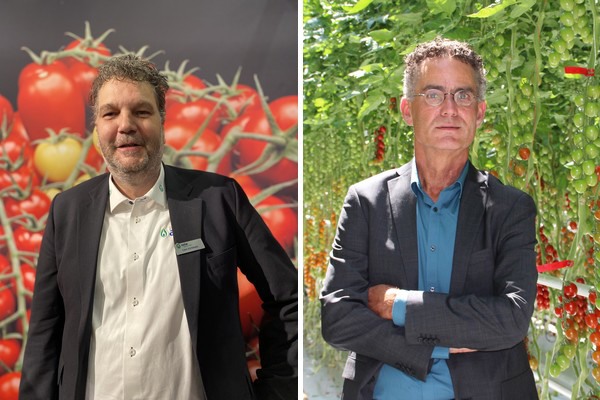
Cees Kortekaas and William van der Riet.
99.9%
Among those varieties are Axia's 'showpieces', such as the cluster tomato Macxize and cherry tomato Maxxiany. The breeding company has decided not to give new names to resistant varieties, but simply to add 'XR' to the already known names. By the end of next year, they aim for 80% of their portfolio, with about 70 varieties, to be resistant.
Aside from the resistance, the varieties are '99.9% identical' to the non-resistant varieties, emphasizes Cees. Last summer, the first resistant varieties were planted on a large scale, in Axia's demo greenhouses and with commercial growers. "Around 650 hectares are now commercially available." He expects to make significant progress with resistant acreage next season. It helps when growers switch from 25 plants to tens of hectares in one go, as has already happened in the Netherlands with the variety Macxize. "And we're also making big strides in North America."
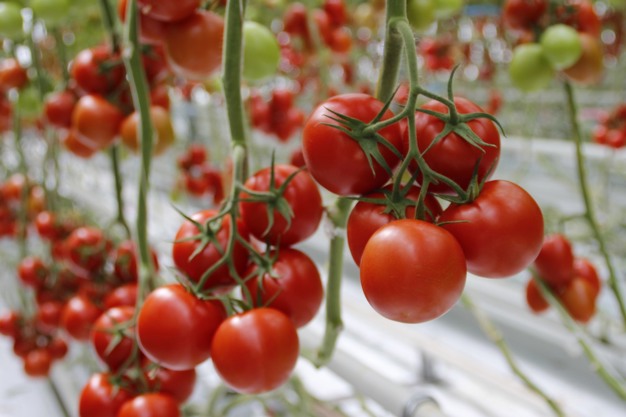
Macxize XR.
Learning to grow with new varieties
With the start of the cultivation of resistant Axia varieties, the accumulation of cultivation data also began. "For the new, resistant varieties, we don't yet have three to five years of data, as we do for our existing varieties. We sometimes see small differences and slightly different reactions of the crop to conditions in the greenhouse. Growers must adapt to this technically."
What helps is that the salespeople in the field at Axia are almost exclusively former growers, emphasizes Cees, who is also a former grower. "All our resistant varieties are somewhat more compact than their non-resistant counterparts. This is a pleasant characteristic of the donor variety from which the resistance comes."
Premium with resistance
Another difference is in color, knows William van der Riet. He is focused on the retail side of the chain at Axia and markets the varieties. "In all cases, the color of our resistant varieties is better than that of the non-resistant original. Also, the green parts stay fresh longer and the fruits are better attached to the cluster. You see it, for example, with Maxxiany. One of our varieties that is positioned as premium on the supermarket shelf. Those who come to taste test blindly can't tell our varieties apart, whether resistant or not."
In the retail landscape, due to ToBRFV, the cards have been reshuffled in recent years, he observes. "More varieties have been admitted than before within certain segments." Now that there is more resistant offer, retailers can choose more easily again. "We're looking beyond just a tick for resistance," William notes. "Our resistant varieties, closely resembling the original, are quickly accepted in retail because of their valued, known properties."
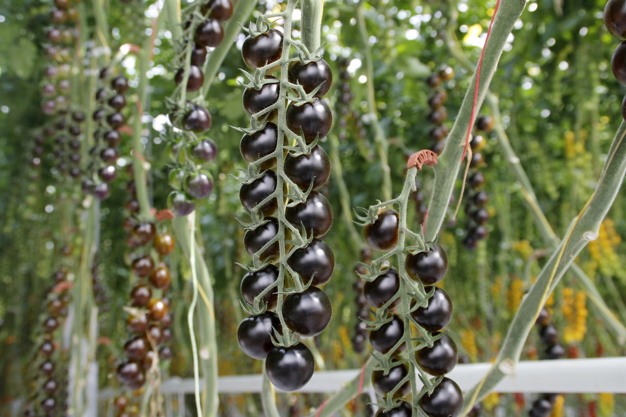
New in the demo at Axia: a new black tomato, HTR2238001.
More color
Not all showpieces at Axia are resistant yet. Premium variety Axiany does not yet have an 'XR'. This variety is not yet available with ToBRFV resistance. A consequence of the high standards they set for themselves. Cees: "With this variety, we're just not yet at that 99.9%."
To get there with more and more varieties, Axia has invested heavily. In five years, the number of people in the laboratory has grown from four to sixteen. "The next series of resistant varieties are coming up quickly behind the first series," knows William. "That's why I was able to show so much more color and also more specialties with resistance at the Global Tomato Congress recently."
In Naaldwijk, all these varieties can be viewed, as well as trials in their own demo greenhouses. Cees: "Here you can see multiple generations of a variety in a row and then you see how we are getting closer to that 99.9% step by step."
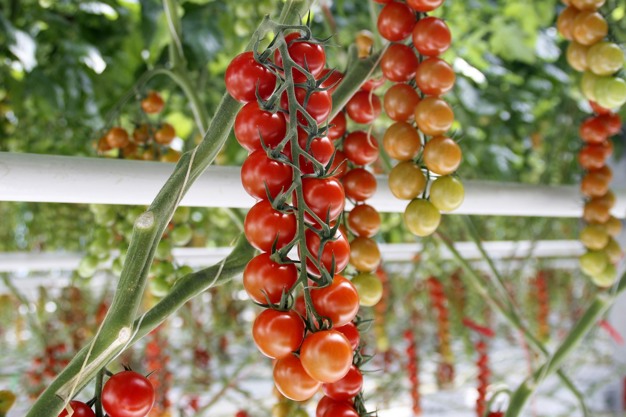
Maxxiany XR.
New construction
Starting next month, construction activity will be visible next to Axia's existing location, where the striking 'villa office' is also located. "A new greenhouse and a new research center will be added. This is important for resistance research and will accelerate it," knows Cees.
Meanwhile, the focus is not only on ToBRFV, both he and William emphasize. "We felt we needed to come forward with the recent developments, but for example, in our demo, we also have a new golden and new black tomato. With resistance against ToBRFV to follow in about a year and a half. "Because that's a requirement."
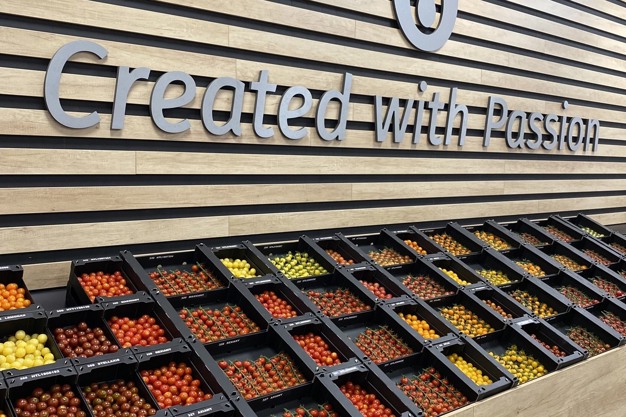
Plenty of color in the presentation room of Axia, with increasingly more resistant varieties.
For more information:
Axia Vegetable Seeds
info@axiaseeds.com
www.axiaseeds.com
